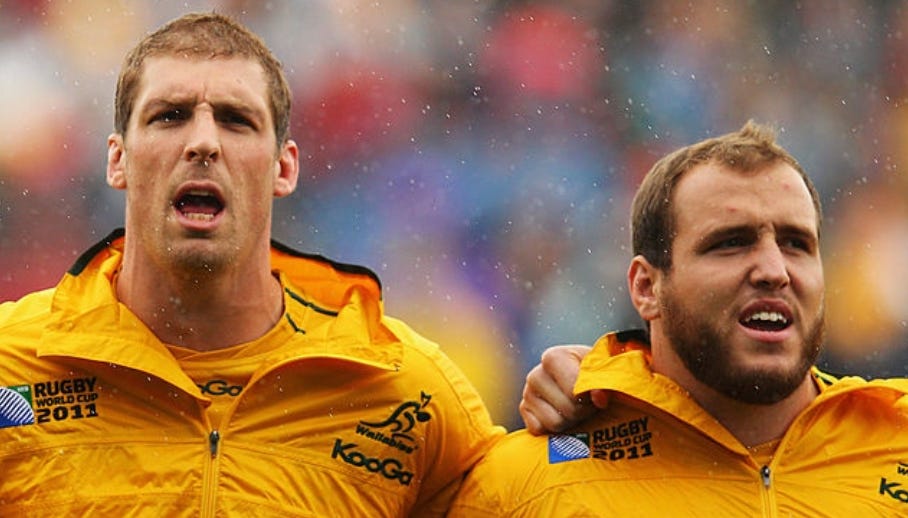In 2017, former teammate Dan Vickerman committed suicide.
And on the weekend, the Australian published a thoughtful article about Dan which discussed the role CTE played in his death.
But I think the article overstates CTE’s role, which is unhelpful and possibly even dangerous.
CTE research is crucial, and the game needs to do everything it can to protect players’ brains.
But it’s dangerous to imply that every athlete’s struggle after sport is caused by it.
Becuase even if it is, that mindset can make athletes feel helpless, especially when there’s no cure.
Plus it risks taking the focus away from the things we can do to stay healthy and sane in retirement (like prioritising sleep and exercising with friends).
I thought I was ready to retire.
The Dock was doing great and I’d spent the year after Dan’s death researching how the brain works.
But my brain was still a mess and it’s taken over five years of work (both on myself and with a psychologist) to get to where I am today.
Maybe I have CTE and I’m in denial (had 5+ head knocks in 20 years playing Rugby).
But I love how my brain works now and think publicity about CTE research needs to be kept quiet until theres actually something that can done about it.
Why is retiring hard?
I started this blog to write about life in retirement from footy, and to give an insight into the challenges sportsmen and women face when the full-time whistle is blown on their sporting careers.
I saw Vicks not long before he died.
He’d put on a lot of weight and looked like he’d stopped exercising, which made me wonder if he ever fully got over his broken leg.
I’d broken mine almost identically to Vicks 10 years earlier. And during the 2011 World Cup, he’d ask me nearly every day about my recovery, often mentioning how painful the rod inside his leg was.
But you’d never know he was in pain come game day, and I was so lucky to play with him.
Looking back, all of that makes me think he might have still been struggling with it in retirement, and that likely affected how much he was able to move and exercise.
And for me, without regular exercise, I’m not sure I’d still be here.
Of course, there would have been other factors in his death too. And just to be clear, I think the researchers are doing incredible work.
But there’s another issue that doesn’t get enough attention: the impact of extreme excitement on the brain.
The highs and adrenaline of playing in front of big crowds leaves a mark (I imagine it’s the same for musicians and I think about Avicii’s death a lot).
For me, letting go of that feeling and trying to stop chasing the high was one of the hardest parts. Because searching for that same excitement led me to make some dumb financial which caused problems I’ve only recently started to recover from.
So what I’m trying to say is this: researchers need to keep researching.
But sport also needs to do more to prepare players for life after the final whistle, especially when it comes to understanding our own psychology.
It can’t just throw its hands in the air and say all struggles are “CTE-related” especially when plenty of non-contact sport athletes struggle too (like swimmers).
The system has to educate players on the importance of building an identity outside of sport, because that’s what will help them find a new purpose.
And maybe some of this training already exists, but it also needs to give them practical tools to manage their mental health better.
Even if it’s just reinforcing the basics like how to get good sleep, and how important regular exercise and staying connected with mates is for a healthy brain.
Because it shouldn’t just be about helping athletes survive after sport.
It should be about helping us build a life worth living, and looking back knowing our sporting career was just chapter one.
Thanks to Jessica Halloran for the article.
I hope this doesn’t come across as negative, but I think there’s still so much more we can learn from Dan’s story that will save lives, beyond just CTE.
And not all of it needs to come from a science lab.


It's easier to blame a disease.
Do you think he had CTE? I watched the video. I thought she said Australia didn't have a brain bank when he died. Did they send his brain to the USA? I'm a bit confused by this.
It sounds like Rugby Australia failed him; he didn't have enough support, suffered in silence, and nobody knew his suffering until it was too late.